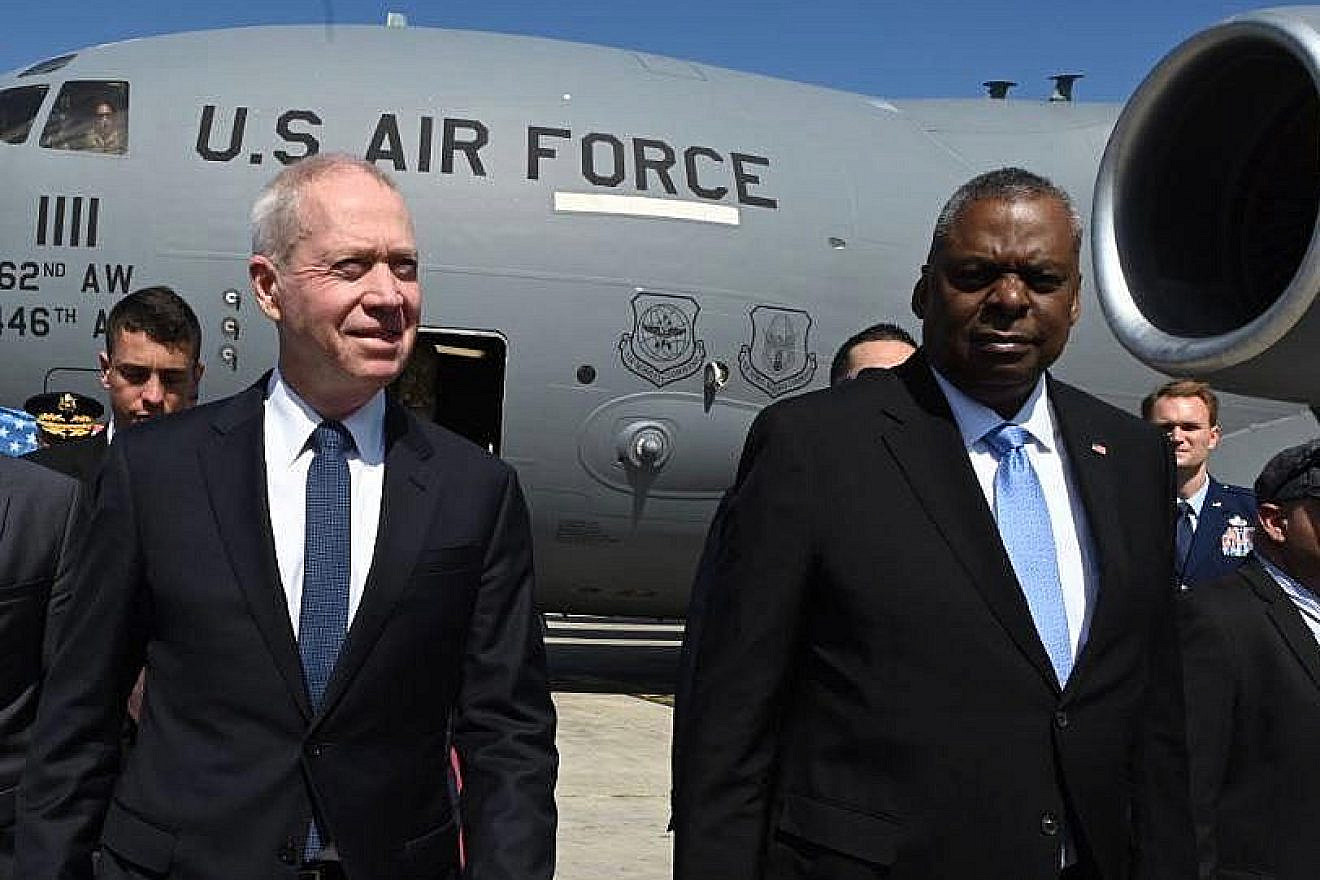Pentagon spokesperson Brig. Gen. Patrick S. Ryder has been close to U.S. Secretary of Defense Lloyd Austin since Hamas attacked Israel and Israel launched “Operation Swords of Iron” on Oct. 7.
The Biden administration has made strong expressions of support for Israel, dispatched weapons and other supplies, and deployed the USS Gerald Ford aircraft carrier to the area. Austin has publicly stated that the United States will provide Israel with whatever it needs to defend itself.
In light of these developments, JNS sat down for a discussion with Brig. Gen. Ryder.
JNS: What is the goal of the Pentagon and the Secretary of Defense in sending the USS Gerald Ford to the region?
Ryder: Secretary Austin directed that U.S. naval assets, including the USS Gerald Ford, go to the region to increase our force posture and do a couple of things. One is to send a clear message of support to Israel and, importantly, to enhance our efforts to bolster regional deterrence. In other words, to send a clear message to other actors in the region that they should not try to exploit this situation and try to escalate the conflict. So, having these forces in the region provides us with capabilities and options should we need to use them and that is in addition to the material support that we’re going to be providing to Israel through equipment and resources, including munitions.
JNS: Is it correct to say that your warning is mainly directed at Hezbollah and Iran?
Ryder: Well, it’s based on groups like Hezbollah; it’s based on countries like Iran—sending a very clear signal that you don’t want to escalate this situation. Again, our primary focus right now is on supporting Israel and Israel’s right to defend itself and its people. And we will continue to stay in very close contact with the Israel Defense Forces and the Ministry of Defense in the days ahead.
JNS: What specific abilities does the USS Gerald Ford have?
Ryder: The USS Gerald Ford, of course, is comprised of an air wing. We also have maritime awareness assets on board, as well as intelligence, surveillance and reconnaissance capabilities. So, it provides us with a multitude of military capabilities that again give us a range of options to respond to any crises or contingencies. I should also highlight that we have kept certain aircraft in the region, including F-35s, and have accelerated deployments of F-15s and F-16s into the region as well. So, we have a variety of aircraft to be able to provide options.
JNS: Does the Pentagon think Russia is using this conflict to take attention away from Ukraine?
Ryder: I can’t speak to that other than to say that the United States will continue to support Ukraine. In fact, Secretary Austin was in Brussels, where he participated in a meeting of the Ukraine Defense Contact Group, which involves 50 nations. So, our commitment to Ukraine remains solid, and we will also continue to support Israel in the days ahead as well.
JNS: Do you have any intelligence that suggests the Iranians were behind the Oct. 7 attack?
Ryder: So, I’m not going to get into intelligence. I do know that there was a Wall Street Journal article that presupposed some things. Again, we don’t have any information right now that corroborates what’s in that article. But Secretary Austin was clear that we are going to support Israel and that he directed the deployment of these assets to the region in order to bolster our regional deterrence efforts.
JNS: How much have you increased the security and defense apparatus at U.S. bases around the region?
Ryder: As a matter of policy, we never discuss our security posture or whether there’s been any changes. Certainly, by having additional assets in the region, it also serves as a force protection capability, but I’m not able to go into specifics about whether or not we’ve changed any security postures.
JNS: What kind of equipment is the U.S. sending Israel?
Ryder: We have been in close communication with the IDF and the Ministry of Defense. They have requested certain types of support. As of right now, we will be able to meet all of those requests, some of which include munitions and air defense, and other capabilities that the IDF are requesting.
JNS: What is Secretary Austin, the Pentagon and the U.S. military’s message to the Israeli public right now?
Ryder: Our message to Israel and the Israeli public is that we stand with you. We were horrified by these abhorrent terrorist attacks. We believe in Israel’s inherent right to defend itself. And we will stand beside Israel in their fight to defend themselves.


























